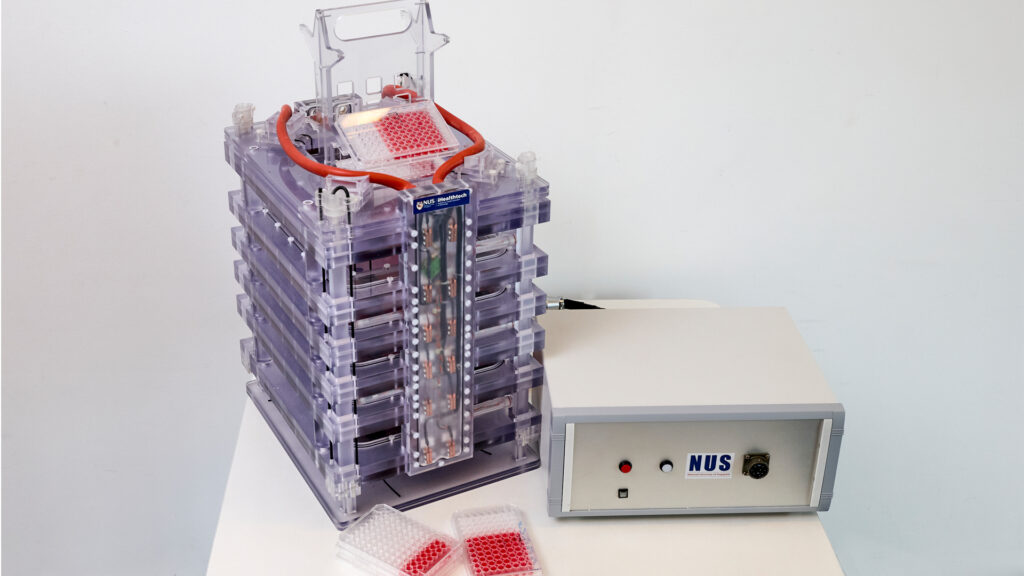MEAT FROM MAGNETS? SINGAPORE SCIENTISTS MAKE ‘CLEANER, SAFER’ BREAKTHROUGH
A team of scientists in Singapore say they have created a magnet-centred method to produce meat that is “greener, cleaner, safer and more cost-effective” than other methods.
At the National University of Singapore, a team of scientists led by Associate Professor Alfredo Franco-Obregón have developed a new method of producing cell-based meat. The innovative method involves the use of magnets, specifically, “zapping animal cells with a magnet,” as described in a press release.
The production process does not require animal products, and has been described as “greener, cleaner, safer and more cost-effective” than other methods.
“Cultured meat is an alternative to animal farming with advantages such as reducing carbon footprint and the risk of transmitting diseases in animals,” a public statement reads.
“However, the current method of producing cultured meat involves using other animal products, which largely defeats the purpose, or drugs to stimulate the growth of the meat.”
Cell-based meat is produced by feeding animal serum to animal cells to help them grow. This method has been described by the team of scientists in Singapore as unfair to animals and expensive too. According to this team of scientists, these molecules originate from the muscles of slaughtered animals, and other methods of producing cell-based meat involve the use of drugs or genetic engineering.
“The complex production process for cell-based meat increases cost, limits the manufacturing scale and undermines the commercial viability of cell-based meat,” the team at the National University of Singapore say.
Making meat from magnets: the process
Associate professor Alfredo Franco-Obregón led a research team that looked into how magnetic pulses could stimulate growth in cell-based meats.
A magnetic field developed by the team is used to help grow myogenic stem cells, found in skeletal muscle and bone marrow tissue.
“In response to a short 10-minute exposure to the magnetic fields, the cells release myriad of molecules that have regenerative, metabolic, anti-inflammatory and immunity-boosting properties,” explained associate professor Alfredo Franco-Obregón.
“These substances are part of what is known as the muscle “secretome” (for secreted factors) and are necessary for the growth, survival and development of cells into tissues. We are very excited about the possibility that magnetically-stimulated secretome release may one day replace the need for FBS in the production of cultured meat.”
He continued: “The growth-inducing secretomes can be harvested in the lab safely and conveniently, and also at low cost. This way, the myogenic stem cells will act as a sustainable and green bioreactor to produce the nutrients-rich secretomes for growing cell-based meat at scale for consumption.”
“The muscle knows how to produce what it needs to grow and develop – it simply needs a little bit of encouragement when it is outside its owner. This is what our magnetic fields can provide,” he added.

Using this method in medicine
Beyond the food industry, the research team believes this method of culturing cells can be applied in medicine. Harvested secretomes can reportedly be used for regenerative medicine and treatment, with secreted proteins used to treat unhealthy cells, accelerating recovery and growth.
A patent for this technology has been filed, with the NUS team in conversations with prospective industry partners to commercialise it.
Singapore as a global leader for lab-grown meat
In 2020, Singapore became the first country to approve the sale of a cultured meat product for human consumption. The country has been something of a pioneer in the cultured meat industry, also becoming the first country that offered home delivery for cultured meat meals in 2021.
Furthermore, one market leader in this field, Good Meat, broke ground on the largest cultivated chicken meat facility in Asia this June. The 30,000 sq ft complex is located at Bedok Food City, with an opening that is expected in 2023. Good Meat noted that the facility would be able to produce “tens of thousands of pounds” of meat every year.
Join us at SIAL Paris as exhibitor Join us at SIAL Paris as visitor
